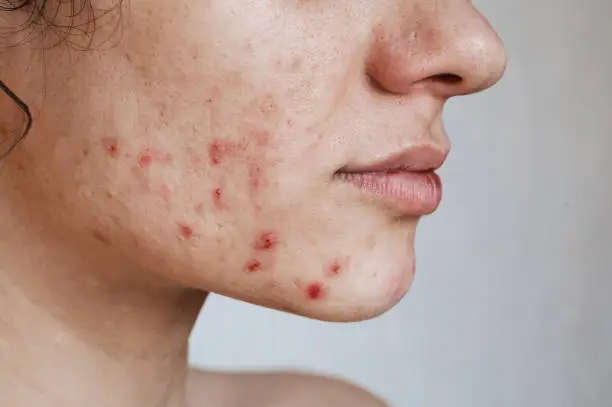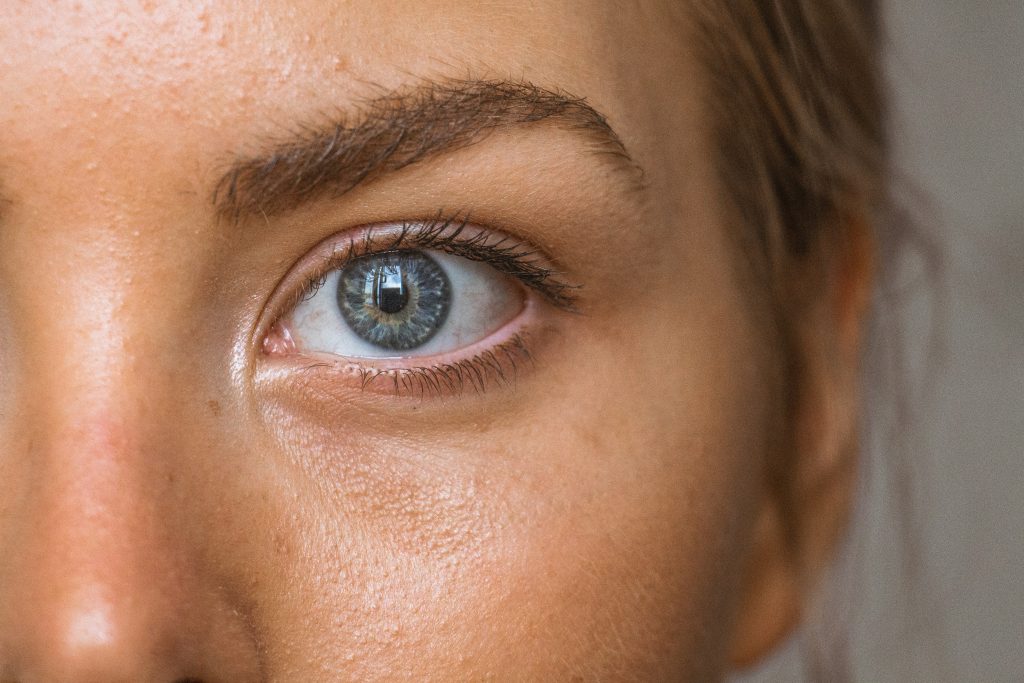What is the Skin Barrier?
When it comes to preserving the health and beauty of your skin, the stratum corneum also called the skin barrier does the job. Your skin barrier is the outermost layer and a dynamic barrier that protects you from the outside world. It regulates moisture, keeps dangerous chemicals from your body, transports essential nutrients into your skin, and promotes healthy skin.
These nutrients include ceramides, fatty acids, and cholesterol, which are essential in keeping your skin nourished and moisturized. However, your skin barrier is not invincible. This means if exposed to factors that could weaken it, it becomes susceptible to damage. If you have sensitive skin, you are more prone to experience an impaired skin barrier. So, keep your skin healthy. The stronger your skin barrier is, the healthier and evenly toned your skin appears. How can you tell if your skin barrier is weak or perhaps damaged?
How to Know a Damaged Skin Barrier
A compromised skin barrier can lead to significant issues, even persistent ones. It is vital to recognize the signals and take precautionary steps to prevent any issues. Here are some of the signs of a damaged skin barrier:
⦁ Itchiness
⦁ Dry Skin or Tight Skin
⦁ Rough Patches
⦁ Discoloration
⦁ Inflammation
⦁ Wrinkles
⦁ Acne
⦁ Irritation

What Causes Barrier Damage?
So many factors and activities can cause skin barrier damage, including a simple face wash. It is a course of wisdom that you become aware of these factors to protect your skin from severe damage. Aside from poor sleep and allergens, let’s talk about other most common agents or activities responsible for a compromised barrier:
Over Exfoliation
On the outer layer of your skin are dead skin cells that can dull your complexion and prevent the absorption of skincare products. Therefore, exfoliation is a necessary treatment in your skincare routine. However, the same dead cells are a component of your protective barrier. When you over-exfoliate, you remove all these dead cells and the lipids that surround them. This, in turn, irritates and makes your skin more vulnerable to damage. Exfoliate thrice a week with physical exfoliant and twice a week for chemical exfoliant.
Medications
Dehydration sometimes occurs as a side effect or aftereffect of some strong medications. This dryness in turn can result in a weakened skin barrier. Also, certain medications like some chemotherapy drugs, antifungals, and antibiotics can increase the skin’s sensitivity to sunlight.
Weather Conditions
Extreme weather conditions such as too much heat, and excessive cold, can cause greater loss of moisture. When the weather is too cold, there is low humidity. Low humidity sucks moisture from your skin, leaving it dry and cracked. On the contrary, excessive heat causes dehydration, thereby compromising your skin’s ability to retain water.

UV Exposure
When your skin becomes extremely exposed to UV radiation, it leads to the production of what is called Free Radicals. Free radicals break apart elastin and collagen in the skin, thereby damaging your skin’s structure and weakening its ability to perform well as a protective layer.
Harsh Chemicals in Products
It is vital to choose your skincare products carefully. Choose products with gentle and non-irritating ingredients. Harsh chemicals in some products can strip away your skin’s natural oil, affect its PH balance and make your skin barrier susceptible to damage.
Aging
Collagen and elastin are structural proteins that enhance your skin’s strength and elasticity. But as you age, your skin experiences a decrease in the production of these essential proteins. Aging contributes to dryness and a compromised barrier, as your skin gradually loses its ability to retain moisture.
Underlying Medical Issues
Some diseases like kidney disease, cause toxins buildup in the skin, which can affect or damage the skin barrier.
How to Fix Skin Barrier and Major Actives to Look Out For
Is your skin barrier weak or damaged? Well, the good thing is that the skin barrier can repair itself naturally, depending on the mildness of the damage. However, to completely repair skin barrier, you have to support the process using Pre, Pro, and Postbiotic ingredients. These ingredients play vital roles in nurturing a healthy skin microbiome and supporting overall skin health.
Now, let’s dive into helpful tips to restoring your look.
1. Begin by finding out what caused your skin barrier damage
2. Skin barrier repair requires crafting a simple skincare routine and sticking to it. Simply follow the CMP (Cleanse, Moisturize and Protect) formula
3. Cleanse gently with mild products and lukewarm water to avoid irritation. Do not use hot water
4. Moisturize using ingredients rich in:
⦁ Niacinamide (Vitamin B3)
⦁ Panthenol
⦁ Ceramide (Pro-Vitamin B5)
⦁ Fatty acids
5. Protect your skin from UV rays using SPF 30 or higher. Avoid greasy products for easy absorption
6. Avoid greasy ingredients for easy absorption.
7. Choose the right products for your own skin. For optimum results, reach out to a specialist for personalized products just for you.
8. Avoid jumping on different products or using multiple products at a time
9. Drink enough water to keep your skin hydrated
Looking for customized products tailored to your skin needs?
At Czarina Beauty Homes, we specialize in customizing skincare products crafted to meet your needs and concerns. Our expert team works tirelessly to understand your skin’s unique needs and preferences, ensuring that each product is tailored to help you achieve your skincare goals. Contact us today to schedule a consultation with one of our skincare specialists.
